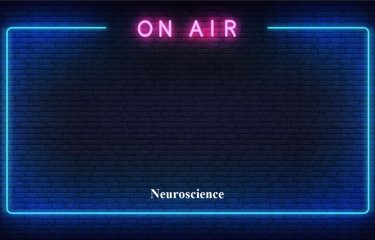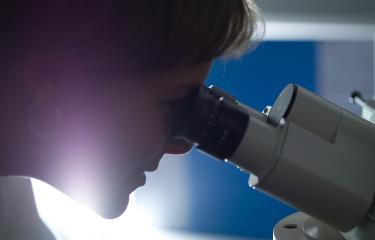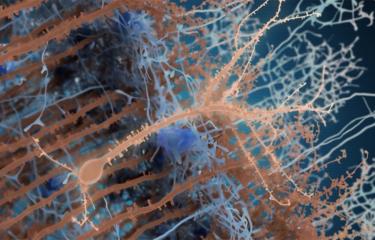The process of aging is often related to the onset of cognitive decline, depression and memory loss. Scientists from the Institut Pasteur, CNRS and Inserm have discovered that administration of the GDF11 protein, which is known to regenerate murine neural stem cells, improves cognitive abilities and reduces the depressive state in aged mice. They also demonstrated the mechanism of action of this protein in different mouse models. The scientists then investigated these results further in relation to depression, and showed that in humans, the levels of GDF11 are inversely related to depressive episodes. The results of this study were published in the journal Nature Aging on February 2, 2023.
The process of aging is often related to the onset of neurological symptoms such as cognitive decline, memory loss or mood disorders such as depression. Previous studies have shown that the growth factor GDF11, a protein found in blood, has a beneficial effect on olfactory perception and on the generation of new cells in the brains of aged mice. The mechanism of action of GDF11 in the brain remained unknown.
Researchers from the Institut Pasteur, CNRS and Inserm have discovered that long-term administration of the GDF11 protein to aged mice improves their memory and significantly reduces behavioral disturbances related to depression, allowing them to return to a behavior similar to that seen in younger mice.
The scientists conducted further studies in different aged mouse models or mouse models with depression-like behavioral disorders and in vitro neuronal cultures, which enabled them to identify the molecular mechanism of action of GDF11. They discovered that administration of GDF11 activates the natural process of intracellular cleaning, called "autophagy", in the brain and the elimination of senescent cells. The GDF11 protein thus indirectly increases cell turnover in the hippocampus and restores neuronal activity.
To better understand the link between depressive disorders and the GDF11 protein in humans, scientists from the Institut Pasteur, CNRS and Inserm, in collaboration with scientists from McMaster University, quantified the protein in the blood serum of an international cohort of young patients with major depressive disorder. They observed that GDF11 levels are significantly lower in these patients. Moreover, by measuring the levels of this protein at different stages, the scientists observed a fluctuation in the level depending on the depressive state.
"This work provides clinical evidence linking low blood levels of GDF11 to mood disorders in patients with depression," said Lida Katsimpardi, a researcher in the Institut Pasteur's Perception and Memory Unit, affiliated with Inserm at the Institut Necker-Enfants Malades, and co-last author of the study. "In the future, this molecule could be used as a biomarker to diagnose depressive episodes. It could also serve as a therapeutic molecule for the treatment of cognitive and affective disorders," she concludes.
Source :
Systemic GDF11 attenuates depression-like phenotype in aged mice via stimulation of neuronal autophagy, Nature Aging, 2 février 2023
Carine Moigneu1,9, Soumia Abdellaoui1,8,9, Mariana Ramos Brossier2, Bianca Pfaffenseller3, Bianca Wollenhaupt-Aguiar3, Taiane de Azevedo Cardoso3, Aurélie Chiche4, Nicolas Kuperwasser2, Ricardo Azevedo da Silva5, Fernanda Pedrotti Moreira5, Han Li4, Franck Oury2, Flávio Kapczinski3,6,7, Pierre-Marie Lledo1,10 & Lida Katsimpardi1,8,10
1. Perception and Memory Lab, Institut Pasteur, CNRS, UMR 3571, Université Paris Cité, Paris, France.
2. Institut Necker Enfants Malades, INSERM UMR-S1151, Université Paris Cité, Paris, France.
3. Department of Psychiatry and Behavioural Neurosciences, McMaster University, Hamilton, ON, Canada.
4. Cellular Plasticity in Age-Related Pathologies Lab, Institut Pasteur, CNRS UMR 3738, Université Paris Cité, Paris, France.
5. Department of Health and Behavior, Catholic University of Pelotas, Pelotas, Brazil.
6. Instituto Nacional de Ciência e Tecnologia Translacional em Medicina (INCT-TM), Porto Alegre, Brazil.
7. Department of Psychiatry, Universidade Federal do Rio Grande do Sul (UFRGS), Porto Alegre, Brazil.
8. Present address: Institut Necker Enfants Malades, INSERM UMR-S1151, Université Paris Cité, Paris, France.
9. These authors contributed equally: Carine Moigneu, Soumia Abdellaoui.
10. These authors jointly supervised this work: Pierre-Marie Lledo, Lida Katsimpardi.
https://doi.org/10.1038/s43587-022-00352-3





